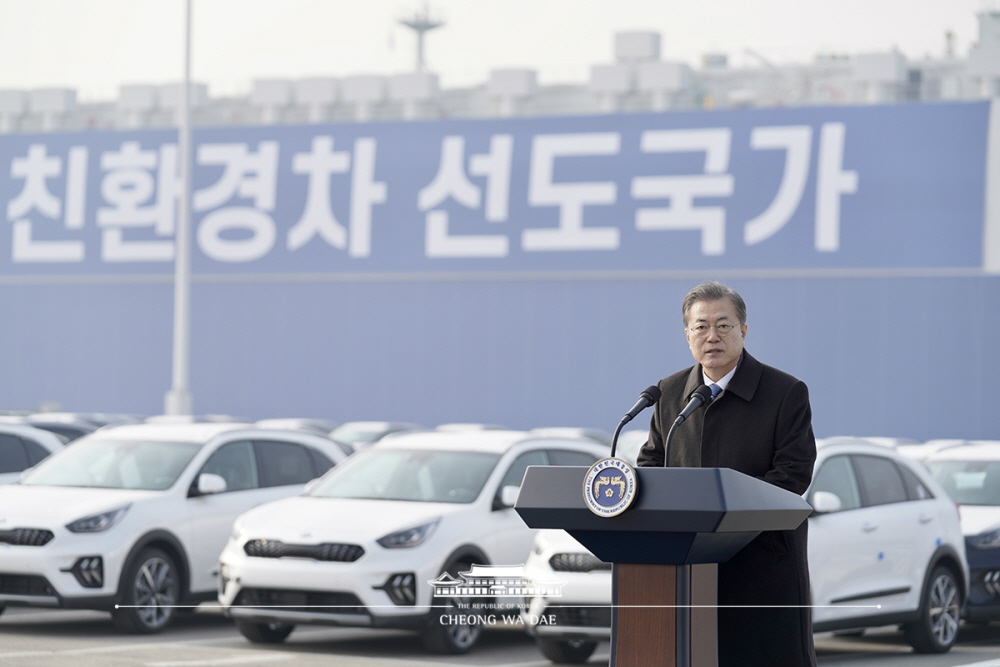이 웹사이트는 제19대 대통령 임기 종료에 따라 대통령기록관이 「대통령기록물 관리에 관한 법률」에 의해 이관받아 서비스하는 대통령기록물입니다. 자료의 열람만 가능하며 수정 · 추가 · 삭제는 불가능합니다.
다만, 「개인정보보호법」에 의하여 개인의 정보를 보호받기 원하시는 분은 관련 내용(요청자, 요청내용, 연락처, 글위치)을 대통령 웹기록물 담당자(044-211-2253)에게 요청해 주시면 신속히 검토하여 조치해 드리겠습니다. 감사합니다.
MEDIA

By Lee Hana
President Moon Jae-in on Jan. 3 took his first field trip of the new year to the Pyeongtaek-Dangjin port in Gyeonggi-do Province, a domestic trade hub for vehicle exports.
As he watched the loading of eco-friendly vehicles produced by the nation's major automakers onto car carrier vessels, the president said Korea would become one of the world's biggest exporters over the next decade.
"The export of eco-friendly cars at the start of 2020 has jump-started the 'win-win leap' of our economy, adding vitality to our markets. Today we are starting a new decade to leap into the ranks of the world's big four powerhouses by 2030," he said.
The president also announced measures to invigorate the domestic future car industry, saying, "The government last year set a goal of making Korea the world's most competitive producer of future cars by 2030."
The measures included investing KRW 380 billion in technical development by 2025, creating an ecosystem for the manufacturing of eco-friendly vehicles, ensuring that at least a third of all new domestically made cars are eco-friendly, and raising the number of electric vehicles and fuel cell charging stations.
On this year's economic outlook, the president said the world economy and global trade conditions will improve from last year's, adding, "The government will make all-out efforts to turn export indicators into pluses and accelerate innovative growth."
During his visit, the president also boarded a car carrier ship while riding the Kia Niro, the nation's first eco-friendly vehicle to be exported this year. The model is Korea's top electric vehicle export, with shipments going to over 60 countries in Europe and North America.
The hydrogen-powered Hyundai Neptune was placed on a vehicle carrier ship for the first time the same day. An estimated 1,600 Neptunes will be shipped to Switzerland by 2025.
***



